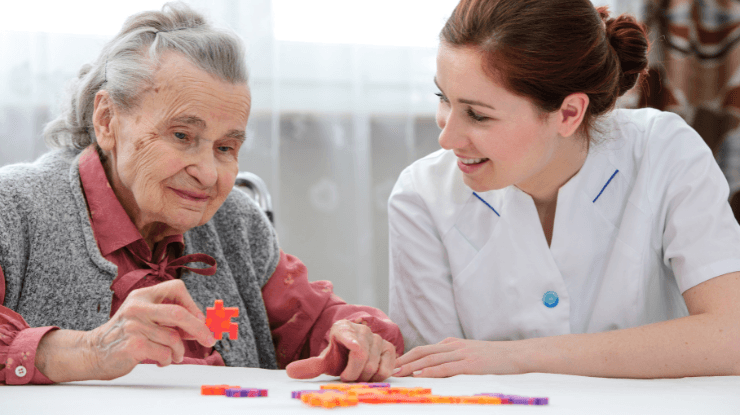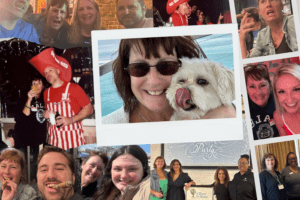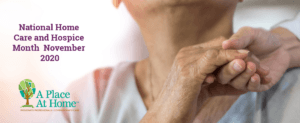
If your senior is experiencing isolation and loneliness, they’re not alone. The AARP Foundation finds that one in five Americans who are 65 years and older are socially isolated. It’s important to recognize whether your loved one feels lonely or isolated, because it’s a hazard to their physical and mental health. Research finds it can result in serious health problems such as high blood pressure, dementia, and increased susceptibility to infectious diseases like the flu.
Families and caregivers can play a pivotal role in ensuring emotional well-being and social connectivity for the elderly. Explore how to combat senior isolation and loneliness.
Recognizing Senior Isolation
The first step in combating loneliness is recognizing the signs. These can range from obvious signs like withdrawing from social activities to more subtle indicators such as changes in eating habits or neglecting personal hygiene. Emotional well-being in elderly individuals is closely tied to their level of social interaction, so keep an eye out for any changes in behavior or mood.
Here’s what to look for in your loved one:
- Lack of interest or withdrawal and deep boredom
- Incapable of connecting with others on a deeper level
- A lack of care for personal hygiene or grooming
- Eating too much or too little
- Either sleeping too much or too little or complaining about sleep issues
- Clutter and hoarding of items in their house
- Increased self-doubt or negative feelings of self-worth
- Quickly exhausted from social activities or avoids them altogether
- Frequent changes in mood, from sadness to irritability
- May become easily defensive or sensitive to criticism
Proactive Measures to Combat Loneliness
Taking a proactive approach can make a world of difference. Here are some suggestions you can try:
- Regular visits: Consistency is key. Make it a point to visit your loved one regularly and encourage other family members to do the same.
- Technology: Teach your loved one how to use video calls or social media to stay connected with friends and family who live far away. Have them schedule a daily time to connect with family and friends over a phone call.
- Community involvement: Encourage participation in community events or religious activities. The benefits of activities for elderly individuals in these settings are immense, from cognitive stimulation to a sense of belonging.
- Pets: A pet can offer companionship and a sense of purpose, reducing feelings of loneliness.
- Physical health:Exercise, eating healthy, and getting the proper amount of sleep (seven to nine hours) can decrease elderly loneliness. The National Institute on Aging says seniors should aim for two-and-a-half hours of activity a week that makes them breathe hard.
- Activity or hobby: Help your loved one reconnect with a hobby they used to enjoy or find a class to learn something new to fill up their free time.
Keeping the Social Connection Alive
As age-related challenges like mobility issues or hearing loss arise, maintaining social connections becomes more complicated but not impossible. Adapt activities to suit their physical capabilities. For instance, consider raised flower beds if your loved one enjoys gardening but can’t bend easily. The benefits of activities for elderly people are not just physical but also emotional and cognitive.
Keeping the mind active is crucial. Simple activities like puzzles, reading, or watching documentaries can keep the mind engaged. Mental stimulation is not just about warding off cognitive decline; it’s also about giving your loved one something to look forward to each day.
Sometimes, all they need is a listening ear. Make time to talk to your loved one about their feelings and concerns. Emotional support can go a long way toward improving overall quality of life.
The Role of Caregivers
Caregivers can play a supportive role in alleviating loneliness. From organizing social activities to providing emotional support and daily stability at home, caregivers can do a lot to promote a sense of belonging. Professional caregiving services like those offered by A Place At Home can provide the necessary social interaction and mental stimulation if you can’t be with your loved one.
Contact A Place At Home
If you’re concerned about senior isolation and are looking for professional support, don’t hesitate to contact us. Our various senior care services are designed to address the unique needs of each individual, ensuring that your loved one is not just cared for but also cherished. We create a customized care plan to fit exactly what you and your loved one need. Remember, loneliness doesn’t have to be a normal part of aging. Take the first step in ensuring a happier, healthier life for your loved one today by finding an A Place At Home location near you.






